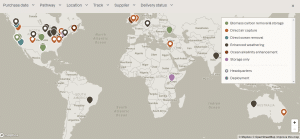A federal judge has imposed fines totaling $6,000 on attorneys representing MyPillow CEO Mike Lindell after they submitted court documents that included nearly 30 erroneous citations. The filings, which were generated using artificial intelligence, referenced nonexistent cases and contained misquotations.
On February 25, 2024, U.S. District Judge Nina Wang in Denver sanctioned attorneys Christopher Kachouroff and Jennifer DeMaster by ordering them to pay $3,000 each. The motion in question was a response to defamation claims made by Eric Coomer, a former director at Dominion Voting Systems. Coomer alleges that Lindell disseminated conspiracy theories regarding election fraud, leading to significant reputational damage.
The sanctions arose from a broader defamation lawsuit filed by Coomer against Lindell and his companies, including MyPillow and FrankSpeech, which began in May 2022. A federal jury ruled in Coomer’s favor on June 16, 2023, determining that Lindell should pay over $2 million in damages, although this amount fell short of the $62.7 million Coomer had sought.
During a pretrial conference, Judge Wang expressed concerns over the citation errors within the AI-generated filing. Kachouroff acknowledged that he utilized AI to draft the motion but admitted he did not verify the citations after processing. “I personally did not check it,” he stated. “I am responsible for it not being checked.”
Despite Kachouroff’s assertion that the flawed document was inadvertently filed as a draft, Judge Wang found the final version still contained significant errors. She noted that some mistakes were not present in the earlier draft. Wang concluded that the filing was not merely an accidental oversight, citing “contradictory statements and the lack of corroborating evidence” as factors in her decision.
Wang remarked that the imposed sanctions were “the least severe sanction adequate to deter and punish defense counsel,” emphasizing that the court takes no pleasure in sanctioning attorneys. “Neither Mr. Kachouroff nor Ms. DeMaster provided the Court any explanation as to how those citations appeared in any draft of the Opposition absent the use of generative artificial intelligence or gross carelessness by counsel,” she wrote.
As the legal landscape continues to grapple with the implications of AI in court proceedings, this case serves as a cautionary tale about the need for thorough verification of legal documents, regardless of how they are generated.






















































